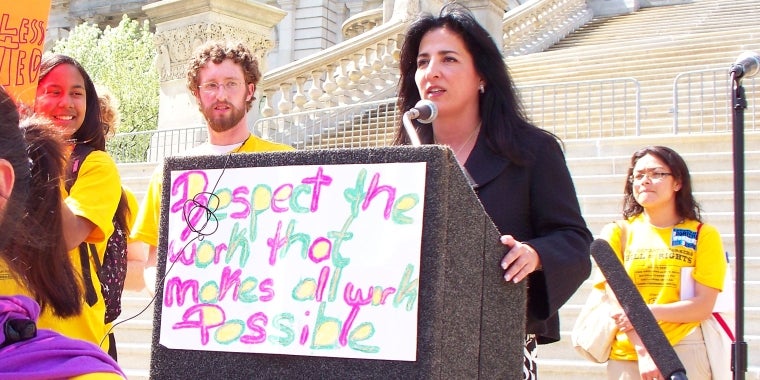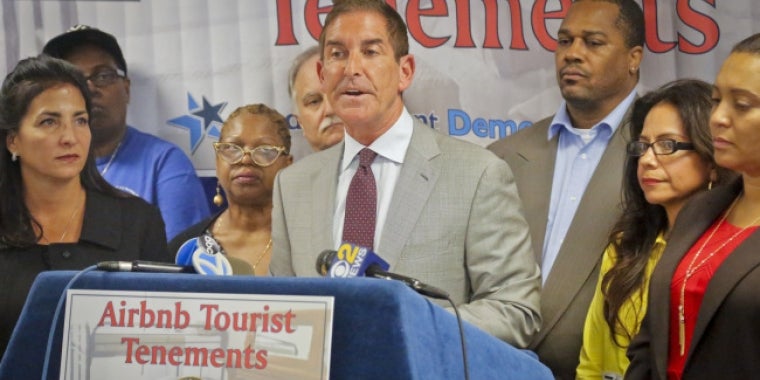
New York To Implement Domestic Workers Bill of Rights

Governor David A. Paterson today signed into law a landmark bill to grant workplace protections to domestic workers, the first such law to be enacted in the nation.
Domestic workers had been excluded from many of the rights granted to other employees by legislation enacted in the past.
Among other provisions, this bill provides for:
The right to overtime pay at time and a half after 40 hours of work in a week, or 44 hours for in-home workers;
A day of rest every seven days, or overtime pay if it is waived;
Three paid days of rest annually after one year of work;
The removal of the domestic workers exemption from the Human Rights Law, and the creation of a special cause of action for domestic workers who suffer sexual or racial harassment;
The extension of statutory disability benefits to domestic workers, to the same degree as other workers; and
A study by the Commissioner of Labor on the practicality of extending collective bargaining rights to domestic workers.
Governor Paterson added: “I understand that similar legislation is now being considered in California. I profoundly hope that New York’s efforts in this area will serve as a national model, and remove the exclusions which have wrongly applied to this class of workers for too long.”
Senator Diane J. Savino said: “Today New York State is again making history in passing legislation to protect working families. We were the first to establish child labor laws, minimum wage laws, and workplace protections in sweatshops. In 1935, President Franklin D. Roosevelt, a former New York State Senator himself, signed the National Labor Relations Act, legislation that gave us the basic labor protections that we all enjoy, but which unfortunately excluded domestic workers. Since then they have toiled without any rights whatsoever. That changes today. With the signing of the Domestic Workers Bill of Rights, we will dramatically improve the lives of those who care for our children, our seniors and our homes, those who make all other work possible. More importantly, it sends a clear message to the rest of the country that domestic workers are indeed employees, and deserve to be treated with respect and dignity.”



